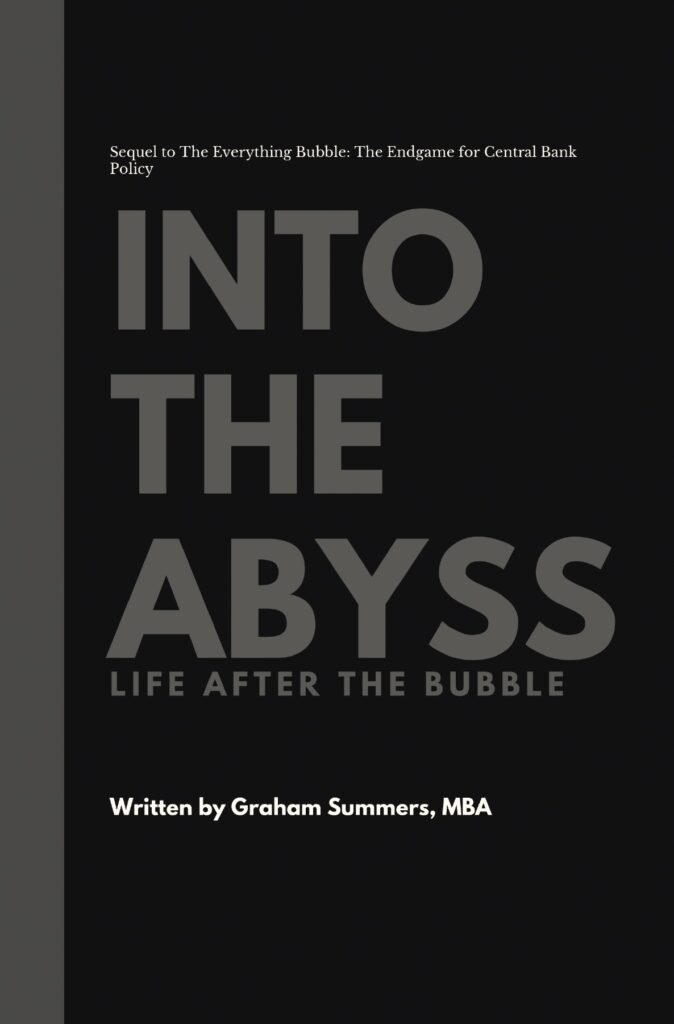This week is options expiration week: the week in which various call and put positions will expire. Wall Street is notorious for using these weeks to gun the markets this way and that in order to insure that the greatest number of puts and calls expire worthless. So expect the market to be even more volatile than usual this week.
Outside of this, the investment world is slowly emerging from its Central Bank policy induced stupor to realize two of our long-standing themes:
1) That European markets are highly overvalued based on their underlying fundamentals.
2) China has an inflation problem and cannot print money non-stop to keep its economy on track.
Regarding #1, Bloomberg ran an article over the weekend expressing concerns that the European markets are overvalued. The truth of the matter is that the entire European banking system is insolvent. There is simply no other way to describe a banking system that is leveraged at 26 to 1 with net assets at nearly 300% of GDP (Europe’s GDP is $16 trillion and its banking system is $46 trillion).
However, the mainstream media can never tell the ugly truth here (doing so would trigger a panic). So instead we’re going to see concerns voiced that Europe is “overvalued” and that European economies need to pick up because the ECB is essentially tapped out.
This is about as close as we’ll get to the media admitting Europe is bust and out of solutions. The fact that this story is already showing up in the media should be a warning that the next round of the EU Crisis is likely around the corner. Both Spain and Greece have recently admitted their banks are at negative value. Expect the news to worsen out of Europe in the coming weeks. What happens if the markets call Mario Draghi’s bluff? We’ll find out this year.
Regarding #2, roughly 30% of China’s population lives off of $2 per year. Food inflation hits this country very hard. And the Government is now stuck between a rock (a slowdown in its economy) and a hard place (higher inflation that results in mass civil unrest).
As a result of this, the Government has to focus on managing expectations both inside and outside of the country. Inside of China this means making public displays of cracking down on corruption to keep the population calm (many Chinese area beginning to ask themselves, “why should I go along with a system in which I’m not getting wealthy but corrupt officials are?” The Government is also taking measures to control prices (see the ongoing rise in Chinese imports despite the economic slowdown) in an attempt to keep inflation at bay.
Outside of China, the Government needs to send signals to the rest of the world that it will not be engaging in massive stimulus without triggering a capital run. Notice that the language coming out of the new leadership is carefully crafted: new party leader Xi Jinping has openly stated that China will not be pursuing “high” growth rates through stimulus going forward.
The message here is that “we’ll engage in stimulus, but we won’t be pumping anywhere near the amount needed to hit double digit growth.” The investment world is totally convinced China is going to pump $1 trillion or more into its economy. Chinese officials are denying this. Take note… typically when the investment world finds out it’s wrong there are serious fireworks.
While everyone else continues to believe the fairytale story spun by the political class and mainstream media, our Private Wealth Advisory newsletter subscribers have already been warned of these issues and are taking action (just as they did in early 2008 when others were bullish, or in 2010 when the EU crisis first began to take off).
Private Wealth Advisory outlined several critical investment strategies, designed to hedge our subscribers from the risks in the market while also alerting them to unique investment ideas that 99% of investors don’t know about.
This includes out of the way hard asset plays that are undervalued by as much as 70%, back-door investments on the US debt ceiling talks that allow individual investors to profit when the stuff hits the fan there, as well as a major slowdown in China.
To find out about these investments and start positioning yourself for what we all know is coming, but no one wants to openly admit, all you need to do is take out a trial subscription to Private Wealth Advisory.
You’ll immediately be given full access to the subscribers’ only Private Wealth Advisory website where you can find the historical archives of this investment newsletter.
You’ll also begin receiving new, hot off the press, issues of Private Wealth Advisory to your inbox every other Wednesday. Running between 20 and 30 pages in length, these intensive newsletters outline an expert understanding of what’s happening in the world, in plain, easy to understand language so our subscribers have the best research presented in the clearest way possible.
In this manner, our clients are always informed about the economy, financial markets, and most importantly, their investments.
To find out more about Private Wealth Advisory and how it can help you and your investments…
Phoenix Capital Research




